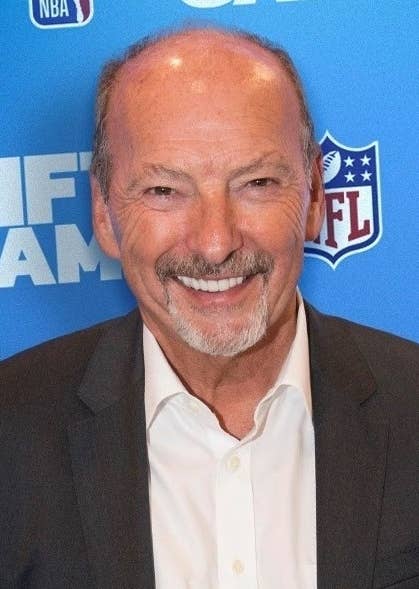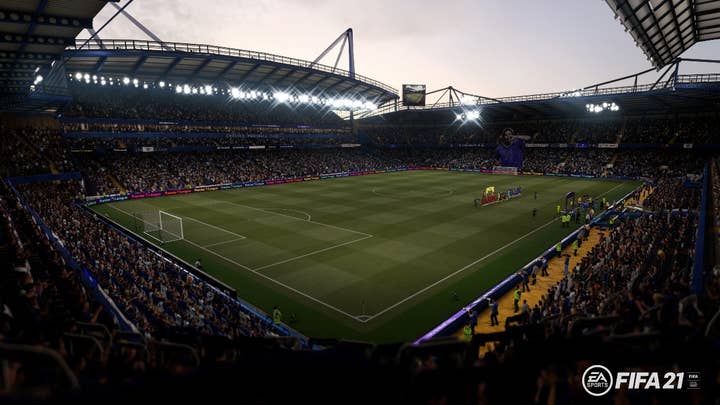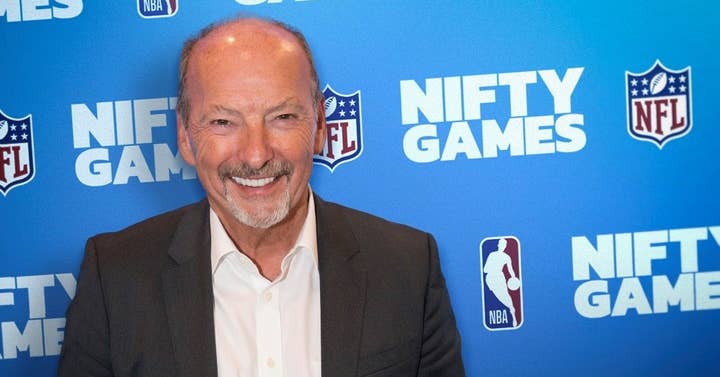Beautiful games: Peter Moore on the intersection between sports and video games | GI Live Online
Former EA boss and Liverpool FC CEO discusses the similarities between the sectors and the potential power of subscriptions
Sports, like video games, are ultimately defined by play.
For all the contrasts between the two, they share deep foundations forged from concepts of game design and systems of rules. The parallels go deeper than those apparent when casting a ludological eye, however. From the presence of fan communities to their relationship with brands, the two entities share a great deal in common.
That's perhaps most strikingly evidenced by the rise of esports; a literal coming together of the two. But beyond the spectacle of those competitive arenas, a veteran of the global industry has a career that itself speaks to the proximity of sports and games in a way that has a lot to teach all of us.

Peter Moore has stood as president and COO of Sega's US operation, corporate vice president of Microsoft's interactive entertainment business and the COO and chief competition officer of Electronic Arts. He has equally served his beloved Liverpool Football Club as CEO over three very successful years, and started out at sportswear outfits such as Reebok and Patrick. Now Moore is back with games, serving on the board of mobile sports studio Nifty Games, while assuming the still mystery-shrouded role of 'SVP and GM of Sports & Live Entertainment' at Unity.
Put more directly, video games and sport have been his life. As a result, he's developed a captivating, insightful enthusiasm for their intersection and ability to inform one another.
"In my three years at Liverpool, I was able to bring a lot of my my video game experience into how we ran the club, how we engaged with fans, around the world, how we acquired data to make our football club of greater value to the lives of fans in Thailand and -- gosh, you name it -- throughout Europe and all through Africa," Moore offered, speaking in an interview during our recent GI Live: Online event. "It's a global football club, as you well know. My video game experience has held me in good stead while I was at Liverpool."
The interview was conducted by our own Chris Dring, and you can watch the whole session below.
And as it happens, that synergy functions in both directions. His work in the business of sport has profoundly influenced his approach to guiding and leading game projects.
"Managing hundreds of millions of people is something we do both in football -- as you know, in the Premier League the big clubs have got hundreds of millions of fans around the globe -- and it is the same in games," says Moore. "We 'manage' and add value to the lives of hundreds of millions of people. [There's] the perspective of what our experience delivers to people every single day, and how we learn from that.
"What does a sports license give you? It gives you the players you recognise, the teams the stadiums, the uniforms. It's pure authenticity. It isn't cheap, but you have to believe in your product"
"In fact, Nifty is a sports mobile game developer with licenses from the NFL and the NBA, so understanding sports, the emotion of sports,the passion of sports and how you can bring it to life for people on different platforms using different technologies [is very important]."
Moore highlights a fascinating point. For all the rules and play that underpin sport and video games, it is really about the people who play and spectate. One could even posit that serving games and managing football operations broadly are to a significant degree acts of community management -- even beyond the remit of the conventional 'community manager' role. And it is that, perhaps, that puts such tremendous potential in sport-themed video games.
"The mobile space gives the greatest opportunity to be able to jump into sports," Moore posits, as he ponders the opportunity sports games present to a broad pool of developers. "Yes, it's great to have the NFL shield show up, as we do at Nifty when the game is loading, because it gives you authenticity. What does a sports license give you? It gives you -- if you have the Players' Association as well -- the players you recognise, the Tom Brady's of this world. You've got the teams you recognise, like my New England Patriots. You've got the stadiums, you've got the uniforms. It's pure authenticity.
"It isn't cheap, but you have to believe in your product. You have to believe that authenticity and paying for it is worth it, and that the brand that is the NFL shield or the NBA logo when it comes up, it screams authenticity, it screams you're about to have an experience that has the real players, the real stadiums, the real uniforms and so on."

That authenticity, Moore believes, is a powerful force when engendering a true intersection of sports and games. At EA, Moore endeavoured to make FIFA not just a successful game, but a part of the culture of football fandom -- and it is tricky to argue that he failed in that regard. He also sees sports games as a potential educator and gateway into real sports. At the same time, though, Moore notes that not every successful sports game needs to be a purebred like FIFA or Madden.
Fundamentally, real-world sports offer templates for games that have appeal far beyond die hard fans of football, tennis, cricket or any other such pursuit. Look at Pong or Wii Sports' ascension to bone fide pop cultural phenomenon if you have any doubts there.
"The greatest opportunity for us is in sports, to apply video games technology to the consumption and experiencing of sports in the real world"
"If you've got a fun mechanic that's engaging, that's engrossing, that's easy to jump into -- then you're hooked," suggests Moore, touching on his belief that sports offer an appeal that can transcend the demographics of players. "You start forgetting, you know -- in some instances -- that ability to have authentic players and uniforms. You're just having fun. The authenticity kind of fades off into the background."
Moore points to the rich history of golf games that haven't relied on licenses or real players. While EA Sports reigned supreme with the Tiger Woods series, releases as distinct as Everybody's Golf and the minimalist masterpiece Desert Golfing show how a sport can lay a game design template for creations that connect with a vast audience that exist beyond the real-world pursuit's core fans.
However, while you might be able to take the football fan out of the beautiful game, you can't take the beautiful game out of the football fan. Despite Moore's optimism about the potential appeal of sports to gamers that don't devote their Saturday evenings to Match of the Day, he can't quite shake his preference for authentic sports games.
"If you do have the ability to go get a license, absolutely -- that has a huge impact and effect on hardcopre sports fans," he asserts.
Another place Moore sees a parity between video games is in the rise of subscription services.There sports may have quite the lead, with the likes of closed-circuit telecast competitions starting to explore specific fan demographics' willingness to pay for their passion as early as 1948. As such, games may have quite a bit to learn as the likes of Games Pass, PlayStation Network and Apple Arcade become mainstays.
"[Subscriptions are] just a change of business model," states Moores. "You have to make a decision. [We] buy a Sky Sports subscription because we love watching football. I can't remember -- it's £35 or something, and you go 'yeah, it's worth it for me to watch Leeds'. But you'll also watch Liverpool and you'll watch all the big games."

And therein lies the potential of subscription for games. They aren't just a way to connect players with the titles they love; they present a powerful discovery platform and one that's working well for games already. What any new gaming subscription service must do, then, is offer value, just as Sky Sports lets the Leeds fan watch all the Liverpool matches they want. As much as subscriptions thrive on their focus, that must be balanced with diversity if we are to see such platforms enjoy a history quite as long as that seen in the sporting world.
Finally, there's the none-too-small matter of Moore's new employment at Unity, about which he jokes that it is nice to be back in full time work. He's in no position to reveal all, but the hints he give point to the perfect culmination of his career's two paths, and perhaps the ultimate intersection of video game technology and sports consumption.
Firstly, Moore points out that the FIFA games can actually give spectators a better experience than televised football, as the former offers the likes of complete camera and replay control -- something broadcast has explored only tentatively though rudimentary interactive TV services.
"Imagine if you had that kind of power in a platform; to be able to experience sports in a realtime 3D element," Moore suggests, bristling with energy. "Those are the types of things we're working on here at Unity. Early days yet, but eventually in the coming months I'll be able to show a little peek of what we're up to. But I think that's the greatest opportunity for us in sports, to apply video games technology to the consumption and experiencing of sports in the real world."
Whatever Unity's vision is for how games tech can support sport fandom, one thing is surely set in stone. Peter Moore will never be far from video games, nor sport. And his work at the engine maker may yet break down the very definitions that separate sports from video games, just as esports has done before.
You can watch the full interview below:


